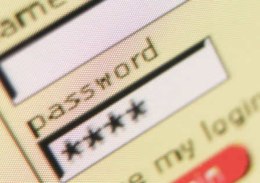The unprecedented growth and expansion of the Internet mean that users are faced with more security challenges than ever. This emphasizes the importance of online security as the threat of malicious attacks, fraud and malevolent programs increases daily. With the recent worm attack on Microsoft Windows at the back of my mind, I find it necessary to share a few security tips I have been using to protect my computer and data from fallen victim to similar attacks.
Firstly, always ensure that you have quality anti-virus software installed on your computer before connecting to the Internet (even if it means waiting a few days) as this is very essential. Invest in good anti-virus suite that comes with an anti-spyware/adware program that can be activated while you are browsing the Internet. Furthermore, make sure that your anti-virus software and security updates are always up-to-date and the computer is scanned regularly. Some of these programs allow users to set a time for automatic updates so that you don’t have to worry about it.
Another common form of attack is Internet phishing, defined by Webopedia as “the act of sending an e-mail to a user falsely claiming to be an established legitimate enterprise in an attempt to scam the user into surrendering private information that will be used for identity theft. The e-mail directs the user to visit a Web site where they are asked to update personal information, such as passwords and credit card, social security, and bank account numbers, that the legitimate organization already has.
The Web site, however, is bogus and set up only to steal the user’s information”. The way to avoid falling victim of such attacks is simply not to reply or click any links in the email so as not to be re-directed to the counterfeit website which usually looks exactly like the original. For example, my bank explicitly states that they never send emails to customers requesting for personal details and I am quite sure most financial institutions are the same. If unsure, simply consult your local branch and if you must open email attachments ensure that you scan them with your anti-virus software before doing so.
Finally, when creating passwords make sure they consist of alphanumeric characters and symbols up to at least 8 characters long and these passwords should not be kept on your computer especially if it is shared with other users. Due to the fact that most security threats are targeted at Microsoft operating systems and programs, consider using non-Microsoft software whenever possible. For example, I usually make use of the Mozilla Firefox Internet browser and often find it to be more stable than Internet Explorer.
Although the above information is not exhaustive or 100% full-proof, they will go a long way in keeping you safe from most forms of attack.
Thanks for reading this article. If you're new here, why don't you subscribe for regular updates via RSS feed or via email. You can also subscribe by following @techsling on Twitter or becoming our fan on Facebook. Thanks for visiting!






















































































































































































